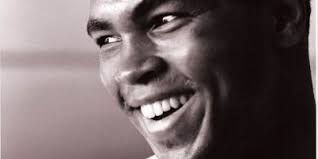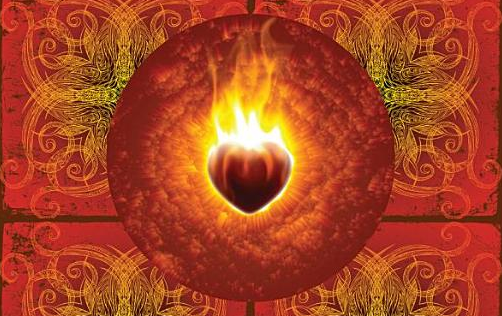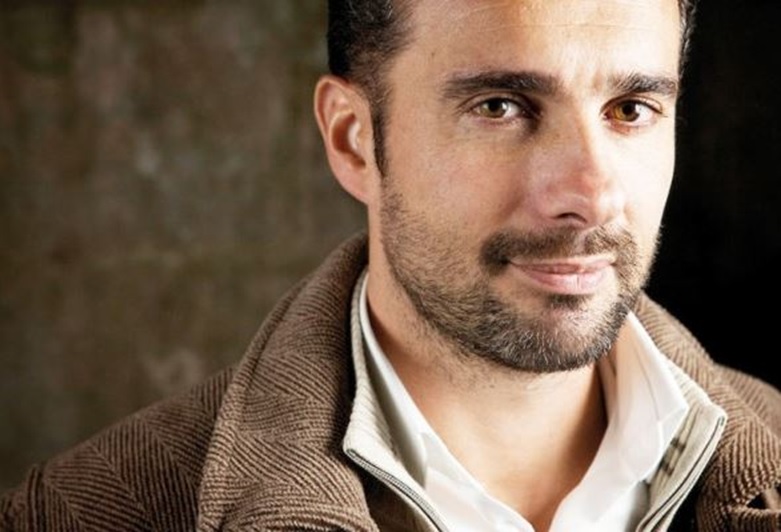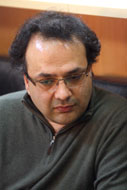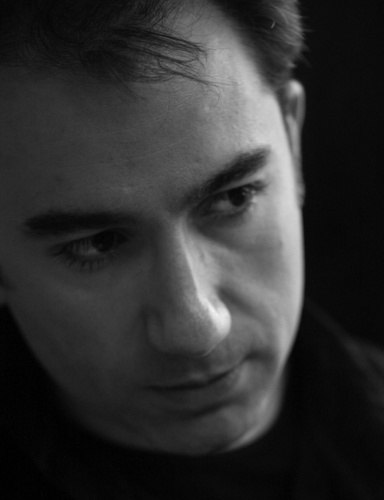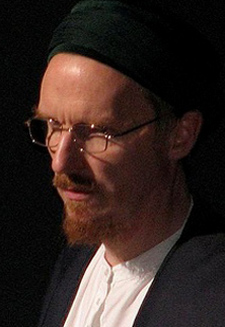 T.J.Winter (Abdal Hakim Murad)
T.J.Winter (Abdal Hakim Murad)
This essay is based on a lecture given at the Belfast Central Mosque in March 1997.
“All too often they follow limited, ideological versions of Islam that are relevant only to their own cultural situation, and have no relevance to the problems of educated modern Westerners. We need to overcome this. We need to capitalise on the modern Western love of Islamic spirituality – and also of Islamic art and crafts. By doing so, we can reap a rich harvest, in sha’ Allah. . .”
Whoever is not thankful for graces
runs the risk of losing them;
and whoever is thankful,
secures them with their own cords.
(Ibn Ata’illah, Kitab al-Hikam)
What I shall be doing in the pages that follow, then, is not forecast, but extrapolate. Allah ta’ala is capable of changing the course of history utterly, through some natural disaster, or a series of disastrous wars. He can even end history for good. If that happens in the next years, then my forecasts will be worthless. All I am doing is, in a sense, to talk about the present, inasmuch as present trends, uninterrupted by catastrophe, seem set to continue in the coming few years and decades.
Why is it useful to reflect on these trends? Because I think we all recognise that the Muslims have responded badly and largely unsuccessfully to the challenges of the twentieth century; in fact, of the last three centuries. Faced with the triumph of the West, we have not been able to work out which changes are inevitable, and which can be resisted.
For instance, in the early nineteenth century the Ottoman empire lost a series of disastrous wars against Russia. The main reason was the superior discipline and equipment maintained by modern European armies. But the ulema, and the janissary troops, resisted any change. They believed that battles were won by faith, and that firearms and parade grounds diminished the virtue of futuwwa, the chivalric, almost Samurai-like code of the individual Muslim warrior. To shoot at an enemy from a distance rather than look him in the eye and fight with a sword was seen as a form of cowardice. Hence the Ottoman army continued to sustain defeat after defeat at the hands of its better-equipped Christian enemies.
Another case in point was the controversy over printing. Until the eighteenth century a majority of ulema believed that printing was haram. A text, particularly one dealing with religion, was something numinous and holy, to be created slowly and lovingly through the traditional calligraphic and bookbinding crafts. A ready availability of identical books, the scholars thought, would cheapen Islamic learning, and also make students lazy about committing ideas and texts to memory. Further, it was thought that the process of stamping and pressing pages was disrespectful to texts which might contain the name of the Source of all being.
It took a Hungarian convert to Islam, Ibrahim Muteferrika, to change all this. Muteferrika obtained the Ottoman Caliph’s permission to print secular and scientific books, and in 1720 he opened Islam’s first printing press in Istanbul. Muteferrika was a sincere convert, describing his background and religious beliefs in a book which he called Risale-yi Islamiyye. He was also very concerned with the technical and administrative backwardness of the Ottoman empire. Hence he wrote a book entitled Usul al-Hikam fi Nizam al-Umam, and published it himself in 1731. In this book he describes the governments and military systems prevailing in Europe, and told the Ottoman elite that independent Muslim states could only survive if they borrowed not only military technology, but also selectively from European styles of administration and scientific knowledge.
Ibrahim Muteferrika’s warnings about the rise of European civilisation were slowly heeded, and the Ottoman state set about the controversial business of modernizing itself, while attempting to preserve what was essential to its Islamic identity.
Muteferrika’s story reminds us that unless Muslims are conscious of the global trends of their age, they will continue to be losers. My own experience of Muslims has suggested that we are endlessly fascinated by short-term political issues, but are largely ignorant of the larger tendencies of which these issues are simply the passing manifestations.
This ignorance can sometimes be astonishing. How many leaders in the Islamic world are really familiar with the ideas which underpin modernity? I have met some leaders of activist factions, and have been consistently shocked by their lack of knowledge. How many can even name the principal intellectual systems of our time? Structuralism, post-modernism, realism, analytic philosophy, critical theory, and all the rest are closed books to them. Instead they burble on about the ‘International Zionist Masonic Conspiracy’, or ‘Baha’ism’, or the ‘New Crusader Invasion’, or similar phantasms. If we want to understand why so many Islamic movements fail, we should perhaps begin by acknowledging that their leaders simply do not have the intellectual grasp of the modern world which is the precondition for successfully overcoming the obstacles to Islamic governance. A Muslim activist who does not understand the ideologies of modernism can hardly hope to overcome them.
A no less lamentable ignorance prevails when it comes to non-ideological trends in the late twentieth century, and which are likely to prevail in the new millennium. And hence I make no apologies for discussing them in this paper. Like Ibrahim Mutefarrika three centuries ago, I am concerned to alert Muslims to the realities which are taking shape around them, and which are moulding a world in which their traditional discourse will have no application whatsoever. It is suicidal to assume that we will be insulated from these realities. Increasingly, we live in one world, thanks to a monoculturising process which is accelerating all the time. There is a mosque in Belfast now, and there is also a branch of MacDonalds in Mecca. We may be confident in our faith and assumptions, but what of many of our young people? What happens to the young Muslim student at an American university? He learns about post-modernism and post-structuralism, and that these are the ideologies of profound influence in the modern West. He asks the Islamic activist leaders how to disprove them, and of course they cannot. So he grows confused, and his confidence in Islam as a timeless truth is shaken. Under such conditions, only the less intelligent will remain Muslim: a filtering process which is already painfully evident in some activist circles.
It is, therefore, an obligation, a farida, to understand the processes which are under way around us.
* * *
The new millennium will dawn over a Muslim world with disproportionately young populations. Moreover, these populations will be increasingly urban. And such situations historically have always bred instability, turmoil, and reform. One explanation for the Protestant reformation in Europe is based on the preponderance of young people in urban sixteenth-century Germany, the result of new agricultural and political arrangements. The growth of fascism in Central Europe in the 1930s is also attributed in part to the growth in the number of young people. And in Islamic history, one thinks of the example of the Jelali rebellions in the sixteenth and seventh century: once the great Ottoman conquests had ceased, the young men who would have been occupied in the army found themselves at a loose end, and launched a variety of sectarian or social protest movements that devastated large areas of Anatolia.
The Islamic revival over the past few years has faithfully reflected this trend. One of the first Muslim countries to reach a peak proportion of youth was Iran, in the late 1970s (around 22% of the population), and the revolution occurred in 1979. In other countries the peak was reached rather later: in Algeria this proportion was reached in 1989, just when the FIS was winning its greatest support.
Following the millennium, this youth bulge will continue in many Muslim societies. The number of people in their early twenties will increase in Egypt, Morocco, Syria, Tunisia, and several other countries. As compared to 1990, in the year 2010 entrants to the jobs market will increase by about 50% in most Arab lands. The unemployment problem, already acute, will become intolerable.
This rapid growth is likely to render some states difficult to govern. The bunker regimes in Cairo and Algiers are already confronting rebellions which have clear demographic as well as moral and religious dimensions. So the first probable image we have of the next millenium is: in the West, aging and static populations, with stable, introspective political cultures; and in the Islamic world, a population explosion, and established regimes everywhere under siege by radicals.
The next consideration has to be: will the bunker regimes survive? This is harder to comment upon, although many political scientists with an interest in the Islamic world have tried. Before the modern period, peasant revolts stood a good chance of success, because manpower could carry the day against the ruler’s army. Today, however, advances in technology have made it possible for military regimes to survive indefinitely in the face of massive popular discontent. Spend enough money, and you can defeat even the most ingenious infiltrator or the most populous revolt. This technology is becoming cheaper, and is often supplied on a subsidised basis to the West’s favoured clients in the Third World. Similarly, techniques of interrogation and torture are becoming far more refined, and have proved an effective weapon against underground movements in a variety of places.
Let me give you an example. Last year’s Amnesty International report explains that in January 1995, the US government licenced the export to Saudi Arabia of a range of security equipment including the so-called ‘taser’ guns. ‘These guns shoot darts into a victim over a distance of up to five metres before a 40-50,000 volt shock is administered. These weapons are prohibited in many countries, including the UK.
Another example, also documented by Amnesty, is the export in 1990 of a complete torture chamber by a UK company, which was installed in the police special branch headquarters in Dubai. This is known in the Emirates as the ‘House of Fun’. The Amnesty report describes it as ‘a specially constructed cell fitted with a terrifyingly loud sound system, a white-noise generator and synchronized strobe lights designed to pulse at a frequency that would cause severe distress.’
These are just two examples of the increasing sophistication of torture equipment now being supplied to the bunker regimes. One could add to this list the improving techniques of telecommunications surveillance.
But what about the Internet? Isn’t the Internet the ultimate freedom machine, allowing the pervasion of all types of dissent, from anywhere in the world, to anywhere in the world? . . . Already there are indications that monitoring of the phone lines which carry the signals is in progress. The centralizing nature of the Internet is in fact tailormade for intrusive regimes. A fairly straightforward programme on a mainframe computer logged on to the telephone net can inform the security forces instantaneously if a forbidden site is being accessed. Once that is established, investigation and arrest are a matter of course.
I believe that as technology improves, including ever more massive surveillance systems, it seems quite likely that the regimes will be able to suppress any amount of dissent, on one condition – that it does not spread to the armed forces. The Shah fell because his army turned against him, not because of the protests on the streets. But in Algeria the revolution has been suppressed, largely because the radicals think they can overwhelm a modern state without support from the armed forces.
The societies governed in this way are now experiencing severe traumas and cultural distortions. They are sometimes called ‘pressure-cooker cultures’. The consequences for the human soul of being subjected to this kind of pressure are quite alarming, and already in the Muslim world we see manifestations of extreme behaviour which only a decade ago would have been unthinkable.
This is not the context for providing full details of the problem of ‘extremism’, or what traditional Islam would call ghuluww. But it is clearly a growing feature of our religious landscape, and I will have to deal with it in passing. In early Islam the movement known as Kharijism fought against the khalifa Ali for the sake of a utopian and purist vision of Muslim society. Today, tragically, the Khawarij are with us once more. I have in mind incidents such as the 1994 shooting in Omdurman, when Wahhabi activists opened fire on Friday worshippers in the Ansar al-Sunna mosque, killing fourteen. Ironically, the mosque was itself Salafi, but followed a form of Wahhabism that the activists did not consider sufficiently extreme.
In Algeria, too, throat-slittings and massacres of villagers, and fighting between rival groups, have transformed large areas of the country into a smoking ruin.
We sometimes like to dismiss these movements as marginal irrelevancies. However, the signs are that until the conditions which have bred them are removed, they will continue to grow. The mainstream Islamic movements are seen to have failed to achieve power, and desperate young people are turning to more radical alternatives. It is fairly clear that a growing polarisation of Muslim society, and of the Muslim conscience, will be a hallmark of the coming century.
* * *
Are these developments on balance cause for optimism, or for disquiet? Well, we know that the Blessed Prophet (s) liked optimism. He also taught tawakkul – reliance upon Allah’s good providence. However, he also taught that tying up our camels is a form of relying on Allah. So how should Muslims consider their options over the next few decades?
There are a number of issues here. Perhaps the most important is the cultivation of an informed leadership. I mentioned earlier that most Muslim leaders cannot provide the intellectual guidance needed to help intelligent young people deal with the challenges of today. Ask the average Muslim activist how to prove a post-modernist wrong, and he will not be able to help you very much. Our heads are buried in the ground. However, it is not only intellectual trends which we ignore. The environment, too, is an impending catastrophe which has not grabbed our attention at all. Perhaps our activists will still be choking out their rival rhetoric on the correct way to hold the hands during the Prayer, while they breath in the last mouthful of oxygen available in their countries. They seem wholly oblivious to the problem.
All this has to change. In my travels in the Islamic world, I found tremendous enthusiasm for Islam among young people, and a no less tremendous disappointment with the leadership. The traditional ulema have the courtesy and moderation which we need, but lack a certain dynamism; the radical faction leaders have fallen into the egotistic trap of exclusivism and takfir; while the mainstream revivalist leaders, frankly, are often irrelevant. Both ponderous and slightly insecure, trapped by an ‘ideological’ vision of Islam, they do not understand the complexity of today’s world – and our brighter young people see this soon enough.
Institutions, therefore, urgently need to be established, to train young men and women both in traditional Shari’a disciplines, and in the cultural and intellectual language of today’s world. Something like this has been done in the past: one thinks of the Nizamiyya madrasa in Baghdad where Ghazali taught, which encouraged knowledge not only of fiqh, but of philosophical theology in the Greek tradition. We need a new Ghazali today: a moderate, spiritually minded genius who can understand secular thought and refute it, not merely rant and rave about it.
The creation of a relevant leadership is thus the first priority. The second has to be the evolution of styles of da’wa that can operate despite the frankly improbable task of toppling the bunker regimes. The FIS declared war on the Algerian state, and has achieved nothing apart from turning much of the country into a battleground. Unless the military can be suborned, there is no chance of victory in such situations. Egypt, Tunisia, Syria and the rest are similar cases. . .
New Muslims like myself are grateful to Allah for the ni’ma of Islam – but we cannot say that we are grateful to the Umma. Islam is in its theology and its historical practice a missionary faith – one of the great missionary faiths, along with Christianity and Buddhism. And yet while Christianity and Buddhism are today brilliantly organised for conversion, Islam has no such operation, at least to my knowledge. Ballighu anni wa-law aya (‘Convey my message, even though a single verse’) is a Prophetic commandment that binds us all. It is a fard ayn, and a fard kifaya – and we are disobeying it on both counts.
Ten years ago a book appeared in France called D’Une foi l’autre, les conversions a l’Islam en Occident. The authors, both career journalists, carried out extensive interviews with new Muslims in Europe and America. Their conclusions are clear. Almost all educated converts to Islam come in through the door of Islamic spirituality. In the middle ages, the Sufi tariqas were the only effective engine of Islamisation in Muslim minority areas like Central Asia, India, black Africa and Java; and that pattern is maintained today.
Why should this be the case? Well, any new Muslim can tell you the answer. Westerners are in the first instance seeking not a moral path, or a political ideology, or a sense of special identity – these being the three commodities on offer among the established Islamic movements. They lack one thing, and they know it – the spiritual life. Thus, handing the average educated Westerner a book by Sayyid Qutb, for instance, or Mawdudi, is likely to have no effect, and may even provoke a revulsion. But hand him or her a collection of Islamic spiritual poetry, and the reaction will be immediately more positive. It is an extraordinary fact that the best-selling religious poet in modern America is our very own Jalal al-Din Rumi. Despite the immeasurably different time and place of his origin, he outsells every Christian religious poet.
Those who puzzle over the da’wa issue in the West generally refuse to take this on board. All too often they follow limited, ideological versions of Islam that are relevant only to their own cultural situation, and have no relevance to the problems of educated modern Westerners. We need to overcome this. We need to capitalise on the modern Western love of Islamic spirituality – and also of Islamic art and crafts. By doing so, we can reap a rich harvest, in sha’ Allah. . . Millions of young Westerners are dissatisfied both with the materialism of their world, and with the doctrines of Christianity, and are seeking refuge in New Age groups and cults. Those people should be natural recruits for Islam – and yet we ignore them.
Similarly, and for the same constituency, we need to emphasise Islam’s vibrant theological response to the problem of conservation. The Qur’an is the richest of all the world’s scriptures in its emphasis on the beauty of nature as a theophany – a mazhar – of the Divine names.
As a Western Muslim, who understands what moves and influences Westerners, I feel that by stressing these two issues, Islam is well-placed not merely to flourish, but to dominate the religious scene of the next century. Only Allah truly knows the future. But it seems to me that we are at a crossroads, of which the millennium is a useful, if accidental symbol. It will either be the watershed which marks the final collapse of Islam as an intellectually and spiritually rich tradition at ease with itself, as increasingly it presides over an overpopulated and undernourished zone of chaos. Or it will take stock, abandon the dead end of meaningless extremism, and begin to play its natural world role as a moral and spiritual exemplar.
As we look around ourselves today at the chaos and disintegration of the Umma, we may ask whether such a possibility is credible. But we are living through times when the future is genuinely negotiable in an almost unprecedented way. Ideologies which formerly obstructed or persecuted Islam, like extreme Christianity, nationalism and Communism, are withering. Ernest Gellner, the Cambridge anthropologist has described Islam as ‘the last religion’ – the last in the sense of truly believing its scriptural narratives to be normative.
If we have the confidence to believe that what we have inherited or chosen is indeed absolute truth, then optimism would seem quite reasonable. And I am optimistic. If Islam and the Muslims can keep their nerve, and not follow the secularising course mapped out for them by their rivals, or travel the blind alley of extremism, then they will indeed dominate the world, as once they did. And, we may I think quite reasonably hope, they will once again affirm without the ambiguity of worldly failure, the timeless and challenging words, wa kalimatuLlahi hiya al-ulya – ‘and the word of God is supreme’.
The complete essay can be found at: https://www.sunnah.org/audio/millen.htm

